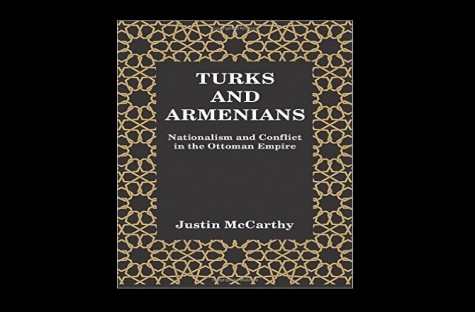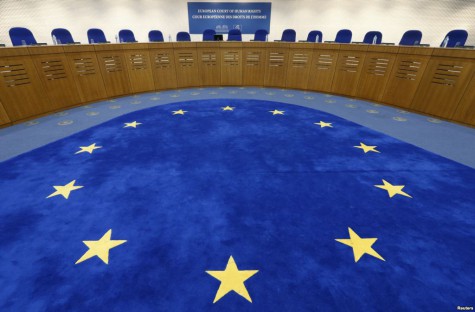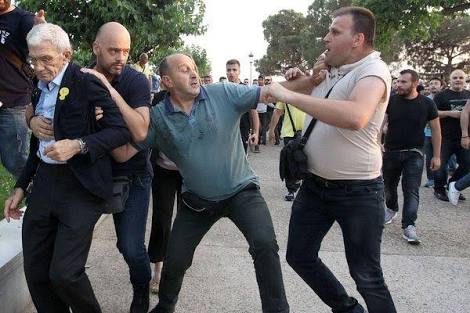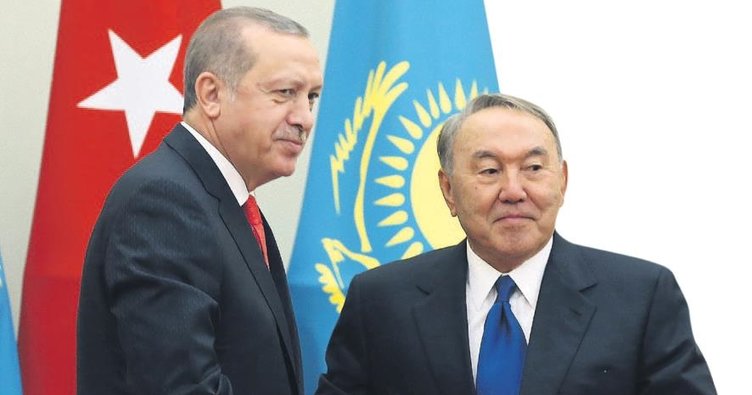Chapter 7: Conclusion
In the conclusion part, McCarthy gives a general framework of his book, “Turks and Armenians” by focusing on how Turks were seen and what was believed of the Turks. Besides that, although Armenians had the lesser population in Six Vilayets, McCarthy highlights the irrationality of desire for minority rule by giving examples and providing documents. McCarthy, points out the importance of the right description of the genocide term by submitting names who tried to form the definition of the genocide term including the United Nations Convention on the Prevention and Punishment of the Crime of Genocide.
Justin McCarthy states that the true history is always underestimated and virtual sources were only mentioned by newspapers and magazines. What happened in the World War 1 is the product of American missionaries and British propagandists' studies.
McCarthy emphasizes that the true events in the Eastern Anatolia was never reflected in a just way. The events were always narrated by the pro-Armenians and prejudice against Turkey was fed with one-sided reports.
On the other hand, McCarthy states that no one tried to narrate events with the contributions of Turks. There is an unjust case here according to McCarthy. Actually, Turkey had no time to deal with such discussions because they tried to rebuild the ruined country. Turkey still have problems of defending herself but these are directly related with not dealing with older problems. Nevertheless, Armenians' modern claims were grounded on the historical propaganda activities. It is pointless to ground the Armenian nationalist identity on historical propaganda data, because none of them are based on truths, but based on what they want to believe, like the classification of "Terrible Turks".
Armenians has always dreamt the creation of Ottoman Armenia. Nevertheless, there is a distinct problem; Armenians were always dreaming of acting as a majority. This is nothing more than emulation to European majorities who had been integrated in the community they had been living in. However, Armenians were distinct to Professor McCarthy for being very few in Six Vilayets. Moreover, McCarthy adds if all Armenians in the world had come to Anatolia, the population would have been still below forty percent. According to Justin McCarthy, Armenians were less than one-fourth of the population in these Six Vilayets. What the Armenians sought was to dominate the whole population, although they were minority in the Anatolian community.
McCarthy mentions that, according to Armenians, eastern Anatolia, Cilicia and southern Caucasus were Armenian lands and everyone but Armenians were invaders and foreigners. McCarthy states that the Dashnaks claimed that the whole land belonged to them. McCarthy states that, despite the fact that 1.7 million Muslims were forced to leave their lands in the South Caucasus and Crimea, they had never made territorial claims.
McCarthy says, today, Armenians use their allegations as their warranty and Armenians are certain that Turkey will not gain European Union accession if they will not accept the Armenian allegations.
The question of genocide is very confusing in general as Justin McCarthy says. However, it is clear that, if there is an intention to exterminate a group of people, it can be one of the acceptable components of act of genocide. Justin McCarthy highlights some names to make the definition of genocide clear in readers’ mind. McCarthy says that, there is an evolution of the term ‘genocide’. Henry Huttenbach and Peter Drost’s definitions are grounded on killing of individuals, but what missing is “an attempt to kill all members of large groups.
As a wider definition of genocide, Frank Chalk and Kurt Jonassohn are brought to the attention of the readers of Turks and Armenians. According to McCarthy, their definitions seem much clearer than the definitions of Huttenbach and Drost. Chalk and Jonassohn made a strong contribution to the definition by using “one-sided mass killing” and “authority intend”. Israel Charney, the last name who made a final contribution to the definition of genocide, emphasized “the essential defenselessness of the victim.” All stages of the genocide definition lead people to identify Nazi state of mind during the act of genocide.
Pointing out that “the most important quality of genocide is intent”, Justin McCarthy states that, “most definitions of genocide, including the UN definition, are strangely silent on intent.” According to McCarthy, if Ottoman administration had intended to kill Armenians, it would not have enacted a relocation policy. Moreover, there is no proof of any Ottoman intended to kill all the Armenians. On the contrary, there are countless indicators that Ottomans had never intended to exterminate the Armenian population in Anatolia. For instance, McCarthy draws attention to the fact that officials who persecuted Armenians were tried by Ottoman courts.
To conclude, McCarthy highlights that there had been a mutual massacre during World War I and in a war case, it is a natural result to be subjected to starvation and disease. McCarthy ends his words by saying no one was guilty and no one was innocent. Therefore, the case was not genocide, but it was a war.

 AN ATTEMPT TO REVIVE ARMENIAN ULTRA-NATIONALIST TERRORISM: THE CONTENT OF THE FBI REPORT
AN ATTEMPT TO REVIVE ARMENIAN ULTRA-NATIONALIST TERRORISM: THE CONTENT OF THE FBI REPORT
 THE RISE OF NATIONALISM IN EUROPE AND SOCIAL DEMOCRATS’ STRUGGLE FOR SURVIVAL
THE RISE OF NATIONALISM IN EUROPE AND SOCIAL DEMOCRATS’ STRUGGLE FOR SURVIVAL
 ECHR’S DOĞU PERINÇEK - SWITZERLAND DECISION (UNOFFICIAL ENGLISH)
ECHR’S DOĞU PERINÇEK - SWITZERLAND DECISION (UNOFFICIAL ENGLISH)
 APRIL 24 AND THE IGNORED FIRST WORLD WAR
APRIL 24 AND THE IGNORED FIRST WORLD WAR
 ARMENIAN TERRORISM BEGINS TO SHOW ITS FACE AGAIN
ARMENIAN TERRORISM BEGINS TO SHOW ITS FACE AGAIN
 TURKISH-AMERICAN RELATIONS LOST A HISTORICAL OPPORTUNITY
TURKISH-AMERICAN RELATIONS LOST A HISTORICAL OPPORTUNITY
 ATTACK ON THESSALONIKI MAYOR: PONTIAN GREEK HATE SPEECH TURNS INTO HATE CRIMES
ATTACK ON THESSALONIKI MAYOR: PONTIAN GREEK HATE SPEECH TURNS INTO HATE CRIMES
 GENOCIDE ALLEGATIONS, PROPAGANDA MOVIES, AND A 90-MILLION-DOLLAR FIASCO
GENOCIDE ALLEGATIONS, PROPAGANDA MOVIES, AND A 90-MILLION-DOLLAR FIASCO
 GUARDIANSHIP IN PRACTICE: LEADERSHIP, ADAPTATION, AND SECURITY CHALLENGES IN THE BLACK SEA
GUARDIANSHIP IN PRACTICE: LEADERSHIP, ADAPTATION, AND SECURITY CHALLENGES IN THE BLACK SEA
 THE CURRENT STATE OF RELATIONS BETWEEN KAZAKHSTAN-TURKEY
THE CURRENT STATE OF RELATIONS BETWEEN KAZAKHSTAN-TURKEY




























